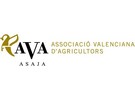The Spanish-French-Italian-Portuguese citrus contact group met online on June 9 and decided to request their respective Ministries of Agriculture to defend, within the European Commission and the European Parliament, the launch of an exhaustive and objective investigation before the revision of the trade agreement signed with South Africa, which will take place in October, coinciding with the fifth year of its entry into force.
The Valencian Association of Farmers (Ava-Asaja), which has participated as a member of Asaja, defended the need to undertake this community research after presenting to the group its study on the impact that the treaty with South Africa has had. Ava-Asaja stated that South African citrus imports to the EU have increased by 30% over the average of the last five seasons. South African oranges account for 50% of the million tons imported from non-community countries, and imports of South African small citrus fruits exceeded 180,000 tons during 2020 (i.e. 36% of the total imported). In addition, South Africa’s productive potential is growing exponentially: during the 2012-17 period it planted more than 10 million plants of late varieties of small citrus fruits and more than 4 million plants of late oranges.
According to the president of Ava-Asaja, Cristobal Aguado: “The situation of the citrus sector in 2016, when the agreement with South Africa was signed, has radically changed, due to the greater commercial and phytosanitary advantages that this third country has. Brussels has promoted a scandalous substitution of our early and extra-early varieties of small citrus fruits (Oronules, Marisol, Arrufatina…) and of early oranges (Navelina). It’s already happening in Spain and in a few years, it will reach Italy and the rest of the producing countries. In addition to the commercial damage, the EU has increased the risk of entry of pests and diseases, such as black spot or false moth, to intolerable levels because it doesn’t require South African citrus shipments to carries out a cold treatment during the transport, among other things.”
“The European Commission and Parliament have many arguments to initiate an investigation and establish corrective measures to guarantee that this trade agreement is limited to complementing Europe’s production, and not to replace it, as all trade agreements signed with third countries should do. In addition, it should have reciprocity in phytosanitary, labor, social, and environmental matters to avoid unfair competition and the entry of pests and diseases that can endanger our crops,” he stated.
For more information:
Ava-Asaja
Tel.: +34 963 804 606
info@avaasaja.org
www.avaasaja.org


